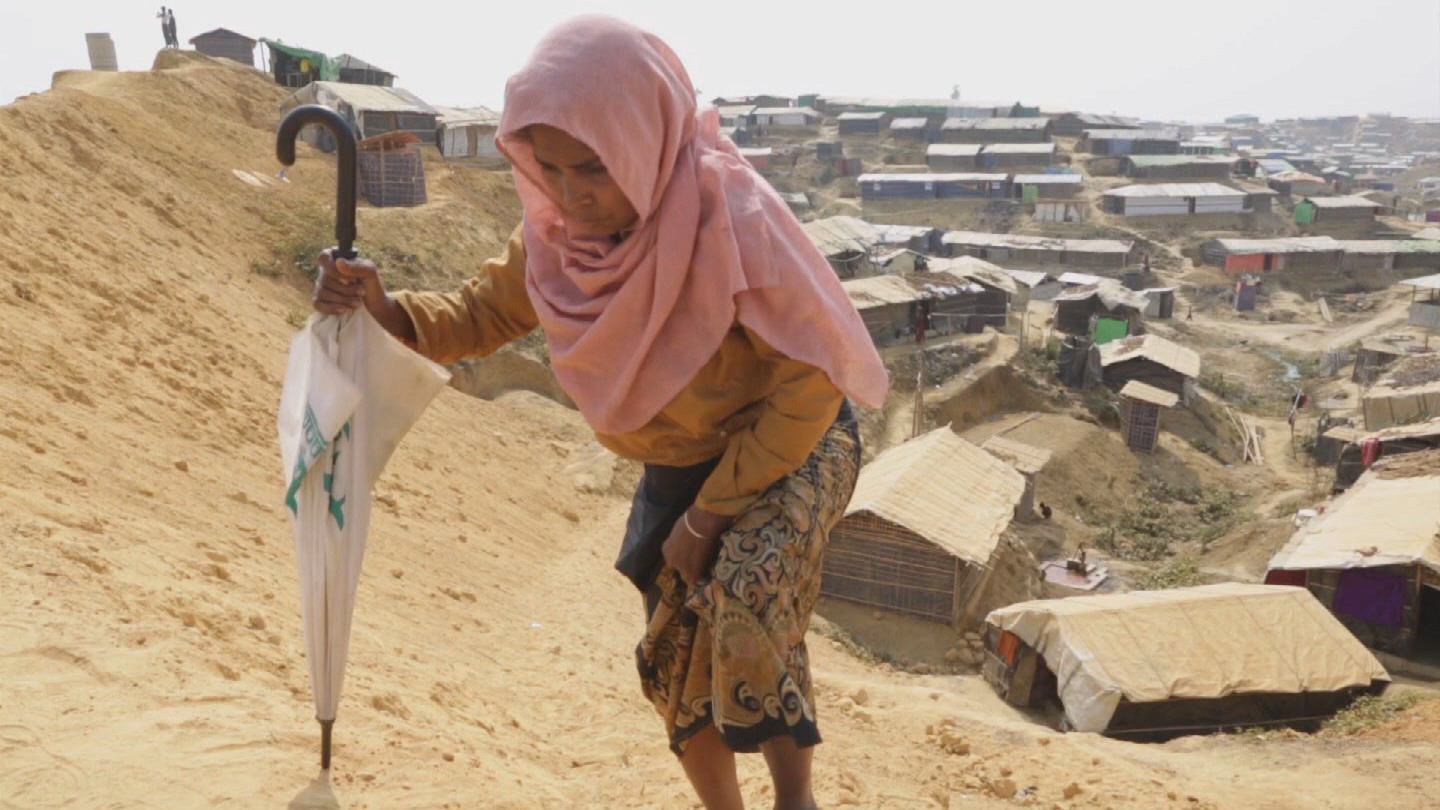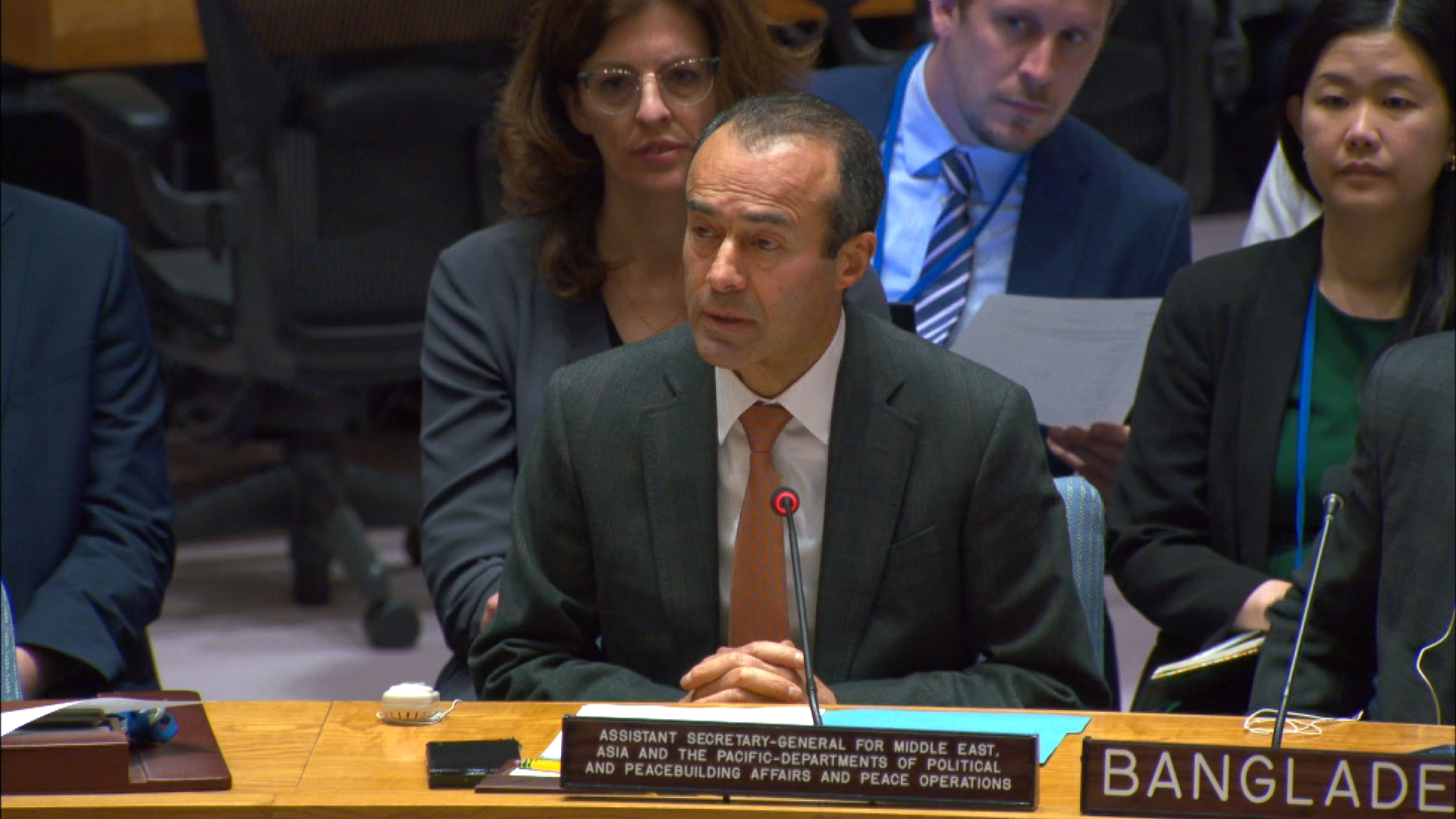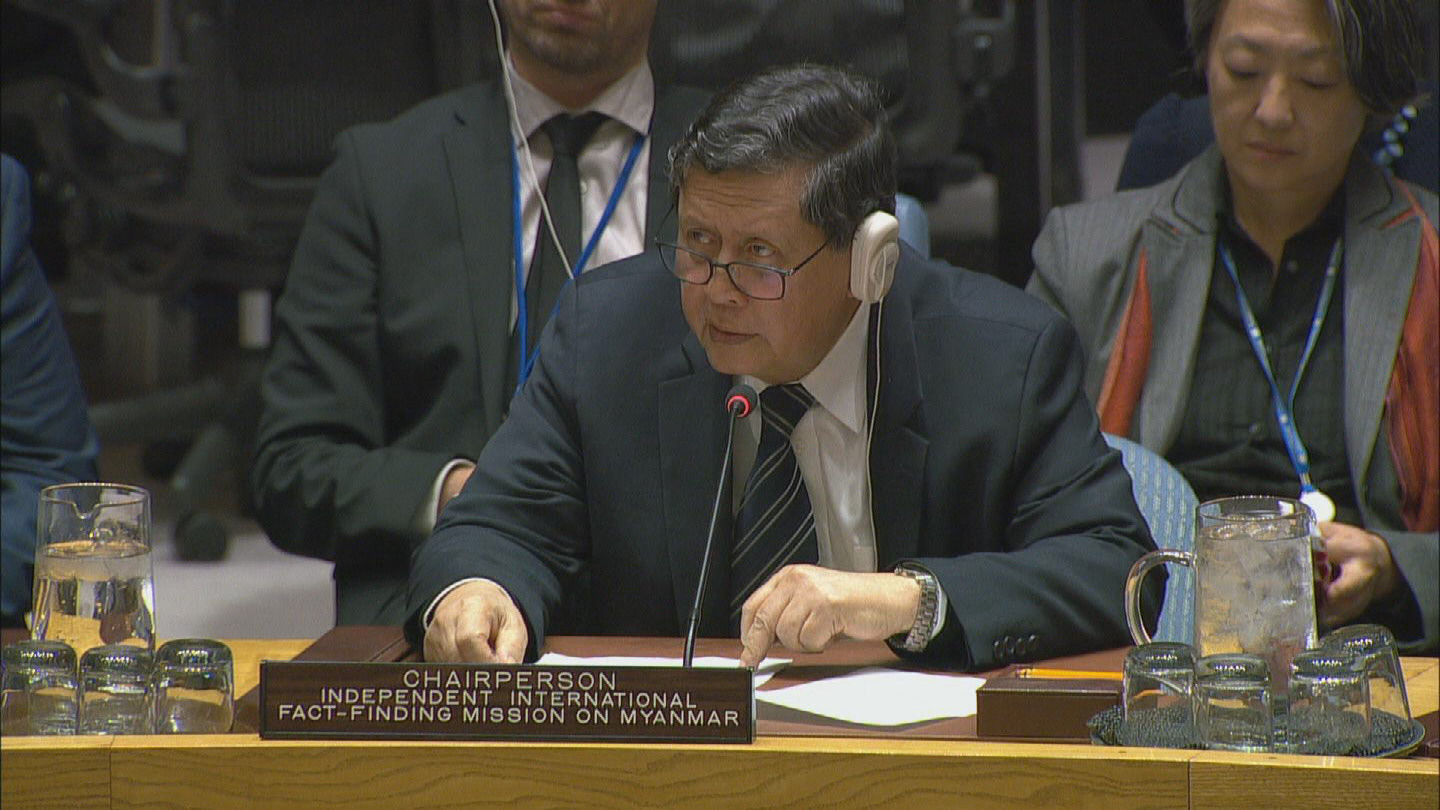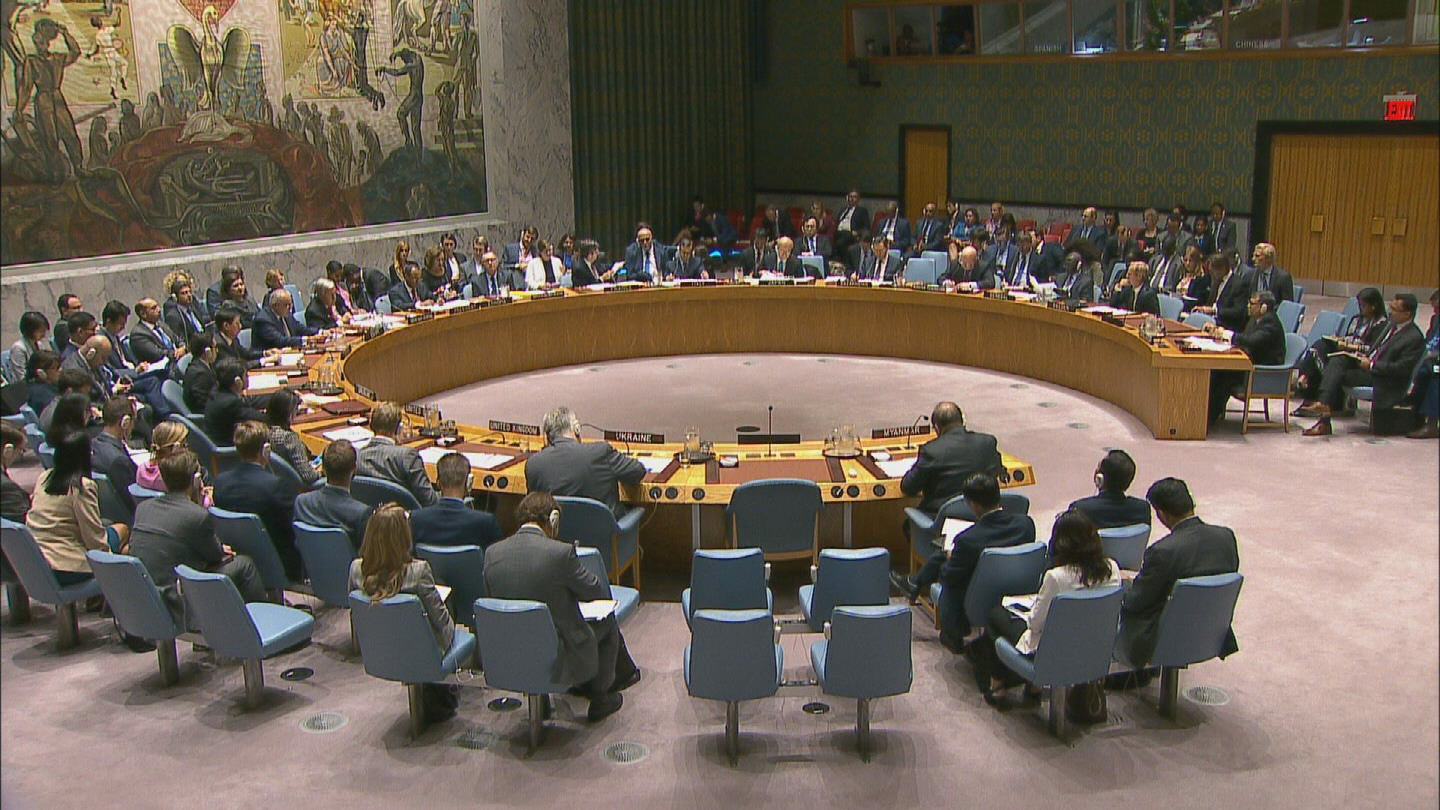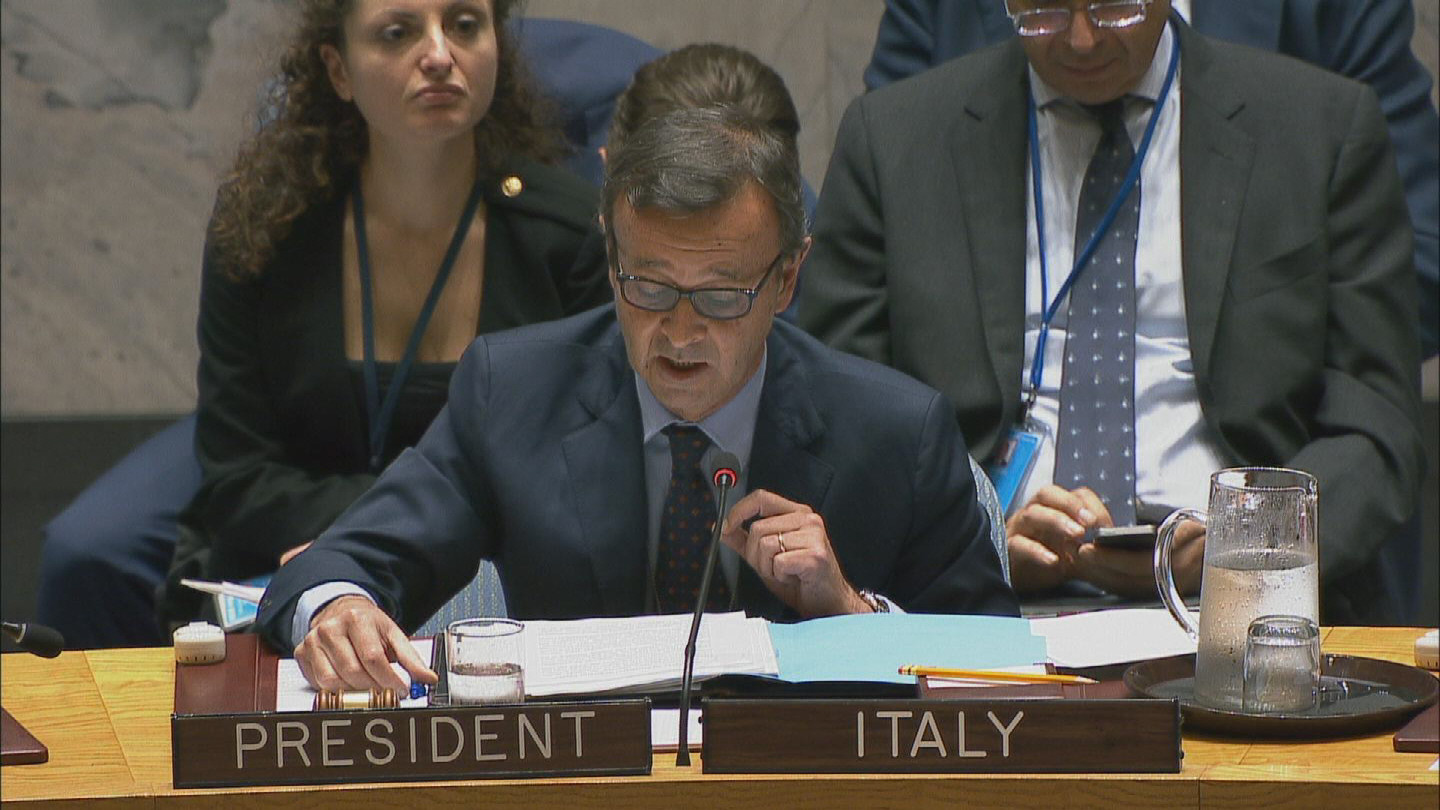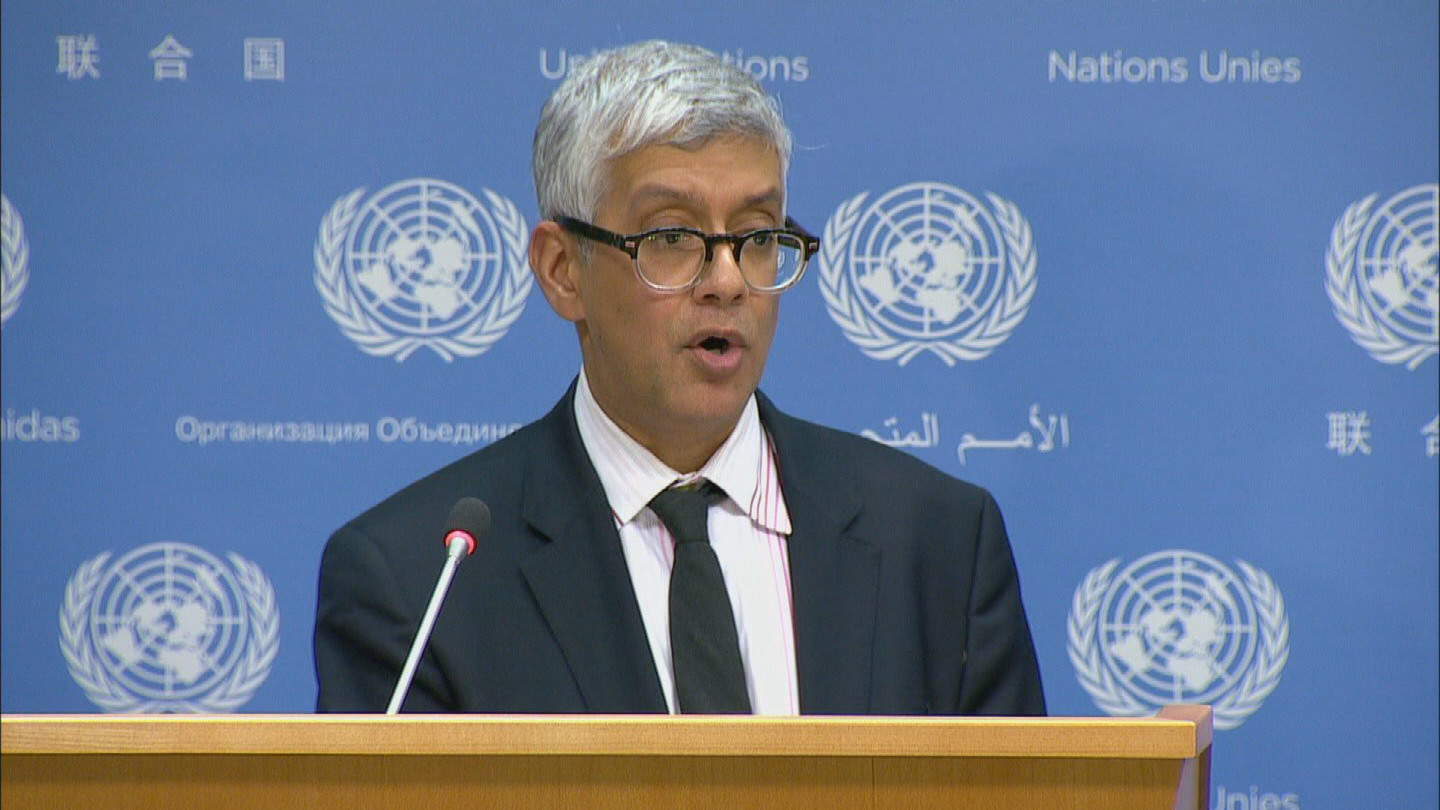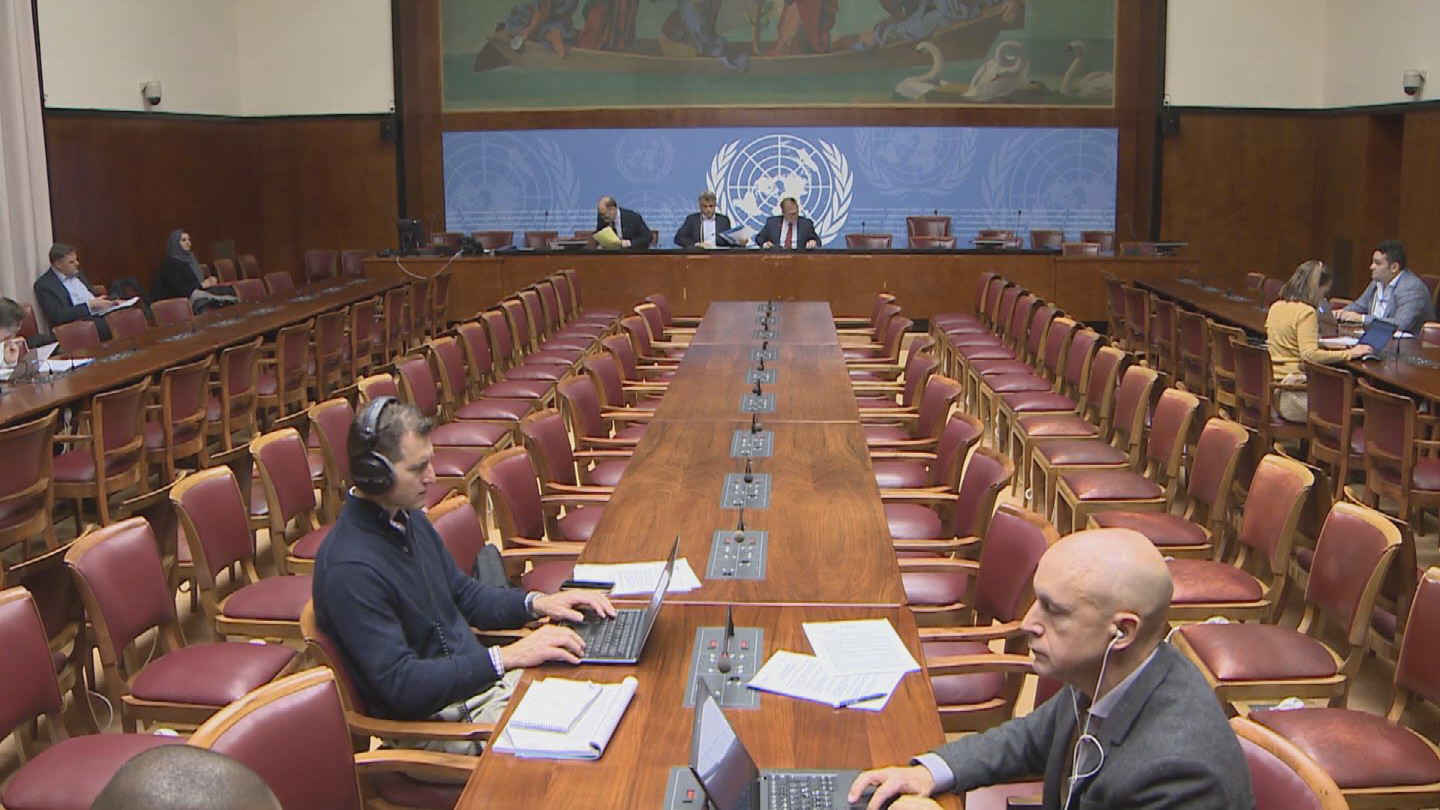UN / ROHINGYA CATE BLANCHETT
Download
There is no media available to download.
Share
STORY: UN / ROHINGYA CATE BLANCHETT
TRT: 4:23
SOURCE: UNIFEED / FILE
RESTRICTIONS: PLEASE CREDIT UNHCR FOOTAGE ON SCREEN
LANGUAGE: ENGLISH / NATS
DATELINE: 28 AUGUST 2018, NEW YORK CITY
FILE - NEW YORK CITY
1. Wide shot, UN flag
28 AUGUST 2018, NEW YORK CITY
2. Wide shot, Security Council
3. SOUNDBITE (English) Cate Blanchett, Goodwill Ambassador, United Nations High Commissioner for Refugees (UNHCR):
“I am a mother, and I saw my children in the eyes of every refugee child that I met. I saw myself in every parent. How can any mother endure seeing her child thrown into a fire? Their experiences will never leave me. This is why I am immensely grateful that the Security Council - the principle body responsible for international peace and security - is working in unison to resolve this crisis.”
4. Med shot, UNDP official and ambassador of Myanmar
5. SOUNDBITE (English) Cate Blanchett, Goodwill Ambassador, United Nations High Commissioner for Refugees (UNHCR):
“With only 33 percent of the refugee operation funded - amounting to less than 70 cents per person per day- this is not surprising. Rather, it is quite embarrassing. Many Bangladeshi villagers living nearby, with little to call their own, have been helping the Rohingya refugees over the past year. If people with so little can step up, why can't we do better?”
6. Wide shot, Security Council
7. SOUNDBITE (English) Cate Blanchett, Goodwill Ambassador, United Nations High Commissioner for Refugees (UNHCR):
“The Rohingya cannot return to the very conditions they were forced to flee. They cannot settle for half solutions. They must know that they belong. A clear pathway to full citizenship is essential. This is not a luxury. This is not a privilege. This is a basic right that all of us here enjoy. A right that the Rohingya do not have.”
8. Wide shot, Guterres at Security Council
9. SOUNDBITE (English) António Guterres, Secretary-General, United Nations:
“I believe this report’s findings and recommendations deserve serious consideration by all relevant United Nations bodies. Effective international cooperation will be critical to ensuring that accountability mechanisms are credible, transparent, impartial, independent and comply with Myanmar’s obligations under international law.”
10. Wide shot, Security Council
11. SOUNDBITE (English) U Hau Do Suan, Permanent Representative of the Republic of the Union of Myanmar to United Nations:
“Our gathering here today could have been a different one had there been no terrorist attack. It could have been a happier occasion to stock taking the implementation of the Rakhine Advisory
Commission or an international pledging conference to help poverty alleviation and [long pause], sorry, and socio-economic development of all communities in Rakhine. The provocative terrorist attacks of October 2016 and August 2017 have affected the course of our earnest endeavour to build a peaceful, fair and prosperous future for the people of Rakhine. But, nothing shall stop our determination to continue our effort to achieve our objectives.”
12. Wide shot, Blanchett and Bangladeshi ambassador
13. SOUNDBITE (English) Masud Bin Momen, Permanent Representative of Bangladesh to the United Nations:
“It is well documented that the Rohingya would, at the minimum, seek guarantee for their safety and security, return to their homes and property, freedom of movement and livelihood opportunities and a clear pathway to their legitimate demand for citizenship in Myanmar. It would be entirely up to the Myanmar authorities to build trust among the Rohingya about their sustainable return and peaceful co-existence with other communities in the Rakhine State.”
FILE – UNHCR - 17 MARCH 2018, KUTUPALONG REFUGEE SETTLEMENT CAMP, BANGLADESH
14. Wide shot, Kutupalong Refugee Settlement in Bangladesh
15. Wide shot, Blanchett walking down path
16. Wide shot, Cate Blanchett looking at makeshift shelters with a UNHCR staffer
17. Wide shot, Cate Blanchett walking up a steep hill with a UNHCR staffer
18. Wide shot, Blanchett walking with mother holding child
19. Med shot, Blanchett speaking to children
20. Med shot, Blanchett speaking to refugee
21. Med shot, Blanchett clapping with children
22. Wide shot, Blanchett standing at door to kitchen
23. Tilt up, Blanchett in kitchen
24. Wide shot, Cate Blanchett looking out from hill
25. Med shot, Blanchett clapping with children
26. Med shot, Blanchett speaking to kitchen worker
27. Wide shot, refugee settlements
28. Wide shot, child sitting on luggage
29. Close up, child at shelter
Actress and UN refugee agency goodwill ambassador Cate Blanchett told the Security Council today that she saw her own children “in the eyes of every refugee child” she met during her visit to Rohingya refugee settlements in Bangladesh adding that their “experiences will never leave” her.
Blanchett, who visited Cox’s Bazar in March, said nothing could have prepared her for the extent and depth of suffering she witnessed. She reported on stories she heard by victims of torture and abuse, and people whose loved ones had been killed before their eyes; including children who saw their grandparents locked in houses and set alight.
SOUNDBITE (English) Cate Blanchett, Goodwill Ambassador, United Nations High Commissioner for Refugees (UNHCR):
“I am a mother, and I saw my children in the eyes of every refugee child that I met. I saw myself in every parent. How can any mother endure seeing her child thrown into a fire? Their experiences will never leave me. This is why I am immensely grateful that the Security Council - the principle body responsible for international peace and security - is working in unison to resolve this crisis.”
The Goodwill ambassador reminded Council members that the latest wave of massive displacement was not the first endured by the Rohingya population adding that there are more Rohingya living in exile today than in Myanmar itself. She said Bangladesh’s recent response in receiving over 700,000 refugees in a matter of months was one of the most visible and significant gestures of humanity in our time, but much more international support was needed. She said refugees in Cox’s Bazar continued to live in squalid conditions and, with only 33 percent of the refugee operation funded, this was “not surprising; rather it is quite embarrassing.” She added, “Many Bangladeshi villagers living nearby, with little to call their own, have been helping the Rohingya refugees over the past year. If people with so little can step up, why can't we do better?”
Blanchett said many refugees she spoke with consider Myanmar their home but have real, deep fears about returning there.
SOUNDBITE (English) Cate Blanchett, Goodwill Ambassador, United Nations High Commissioner for Refugees (UNHCR):
“The Rohingya cannot return to the very conditions they were forced to flee. They cannot settle for half solutions. They must know that they belong. A clear pathway to full citizenship is essential. This is not a luxury. This is not a privilege. This is a basic right that all of us here enjoy. A right that the Rohingya do not have.”
UN chief António Guterres said the massive refugee emergency that began one year ago in Rakhine State has become one of the world’s worst humanitarian and human rights crises. He said he condemned the attacks by extremists against the security forces, but stressed that they could never justify the disproportionate use of force against civilian populations and the gross human rights violations committed by the Myanmar security forces and their allies.
Guterres said accountability was essential for genuine reconciliation between all ethnic groups and a prerequisite for regional security and stability. However, he said Myanmar has regrettably refused to cooperate with United Nations human rights entities and mechanisms, despite repeated calls to do so, including by the Security Council. He noted that the UN Independent Fact-Finding Mission (FFM) on Myanmar found patterns of gross human rights violations and abuses committed by the security forces, which it said undoubtedly amount to the gravest crimes under international law.
SOUNDBITE (English) António Guterres, Secretary-General, United Nations:
“I believe this report’s findings and recommendations deserve serious consideration by all relevant United Nations bodies. Effective international cooperation will be critical to ensuring that accountability mechanisms are credible, transparent, impartial, independent and comply with Myanmar’s obligations under international law.”
The Secretary-General said much remained to be done to provide the necessary conditions for peace and justice in Rakhine. He noted that so long as a climate of fear and persecution prevails, voluntary returns would not take place.
Myanmar’s ambassador to the UN U Hau Do Suan said the Arakan Rohingya Salvation Army (ARSA) carried out terrorist attacks in October 2016 and March 2017 in a premeditated manner to incite violence and attract international attention to the issue at a time when the whole world was welcoming the country’s peaceful democratic transition. He said ARSA and their foreign masterminds knew too well that the Myanmar security forces would respond their attack with full force and must have anticipated the exodus of people from northern Rakhine to Bangladesh.
SOUNDBITE (English) U Hau Do Suan, Permanent Representative of the Republic of the Union of Myanmar to United Nations:
“Our gathering here today could have been a different one had there been no terrorist attack. It could have been a happier occasion to stock taking the implementation of the Rakhine Advisory
Commission or an international pledging conference to help poverty alleviation and [long pause], sorry, and socio-economic development of all communities in Rakhine. The provocative terrorist attacks of October 2016 and August 2017 have affected the course of our earnest endeavour to build a peaceful, fair and prosperous future for the people of Rakhine. But, nothing shall stop our determination to continue our effort to achieve our objectives.”
U Hau Do Suan said his government shared deep sympathy and concern for all displaced persons, especially women and children. However, he added that this was not the time for exploiting the plight of innocent people for self-interest and political grandstanding.
The Burmese ambassador expressed serious doubt on the intention of the timing of the release of the FFM report, which he said was scheduled to be submitted to the Human Rights Council on September 18. He added that the report was hastily released on the eve of the Security Council’s meeting which raises serious questions about the objectivity, impartiality and sincerity of the Fact-Finding Mission.
Bangladeshi ambassador Masud Bin Momen said every passing week, there is new information emerging about the extent of persecution and dehumanization the Rohingya had been subjected to, and about the possible ramifications of keeping the crisis unresolved for long. He added that in no uncertain words, the FFM concluded that displacement of the Rohingya was pre-meditated and organized, and that the perpetrators had acted with a genocidal intent.
Bin Momen stressed that the return of the Rohingya cannot be commenced unless the Rohingya themselves regain trust and confidence to voluntarily opt for repatriation. He noted that the Rohingya would, “at the minimum, seek guarantee for their safety and security, return to their homes and property, freedom of movement and livelihood opportunities and a clear pathway to their legitimate demand for citizenship in Myanmar.” He added, “It would be entirely up to the Myanmar authorities to build trust among the Rohingya about their sustainable return and peaceful co-existence with other communities in the Rakhine State.”
The Bangladeshi ambassador said the Government of Myanmar could evoke confidence by allowing unimpeded access to development and aid agencies to the affected areas, managing the safe and sustained return of the Rohingya stranded at the border, dismantling displacement camps within Rakhine State, and promoting reconciliation and trust among communities.
